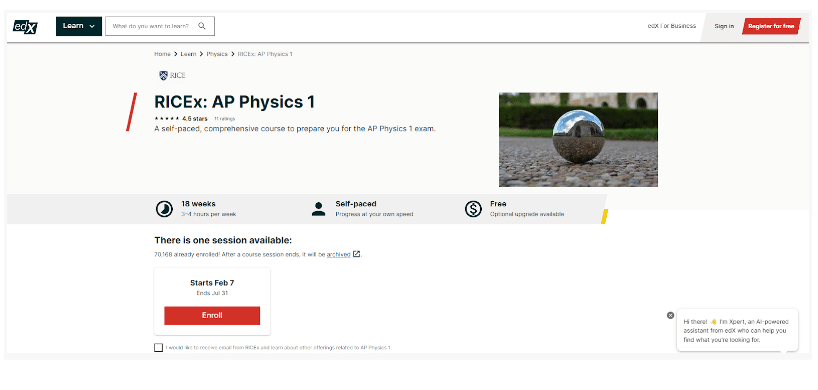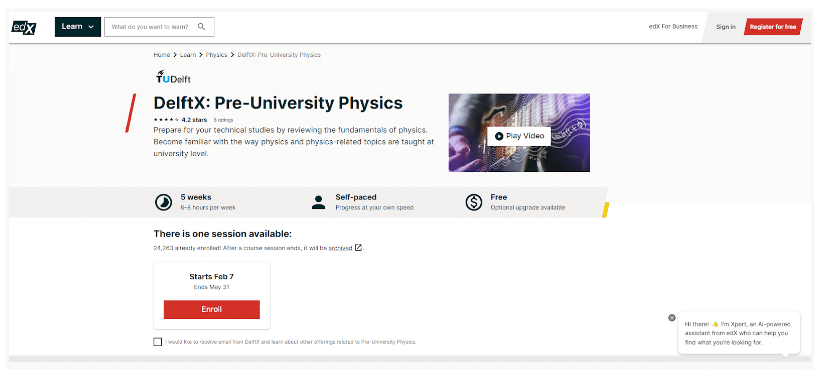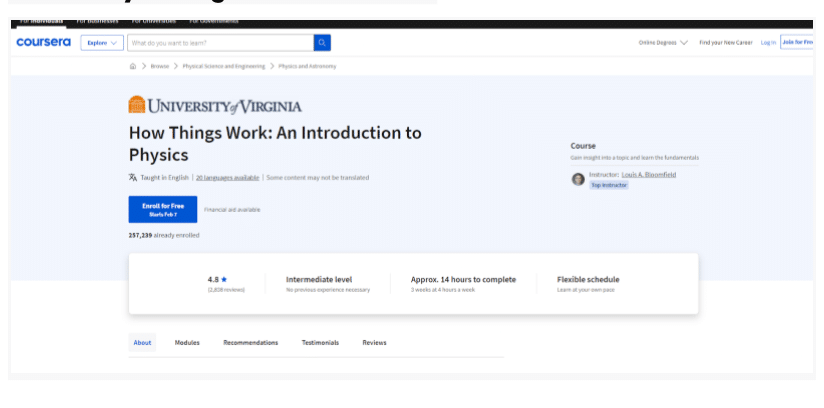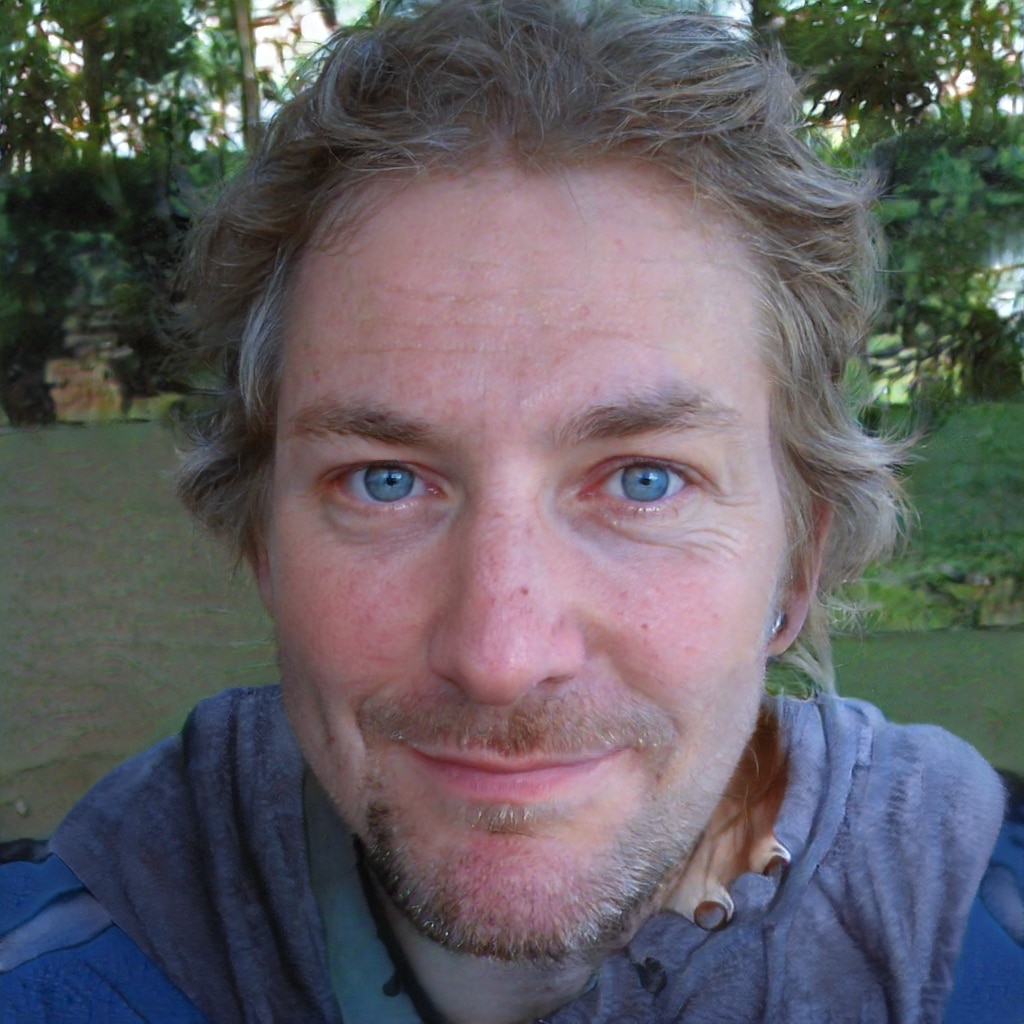From the smallest subatomic particles to the vastness of space, physics provides a framework for understanding how things move, interact, and exist.
This guide introduces the top 15 basic physics concepts along with the best basic physics course that will teach you everything to build your foundation in physics.
Overview: Basic Physics (BascPhys)
This course is designed to introduce learners to the fundamental concepts of physics, making it perfect for beginners, students, and anyone with a curiosity about how the physical world operates.
Through clear explanations, practical examples, and engaging activities, participants will explore the basic principles that govern motion, energy, and the forces of nature.
This course aims to demystify physics, making it accessible and interesting to all who wish to understand the science behind everyday phenomena.
Course Syllabus Preview:
Our course syllabus is carefully structured to ensure a comprehensive understanding of basic physics, presented in a way that is easy to grasp for all learners. Here’s a detailed look at the major topics and their subtopics:
I. Introduction to Physics
- What is Physics?
- The Scientific Method in Physics
- Units of Measurement and Conversions
II. Motion and Forces
- Understanding Motion: Speed, Velocity, and Acceleration
- Newton’s Laws of Motion
- The Concepts of Force and Friction
III. Energy and Work
- Types of Energy: Kinetic and Potential
- Conservation of Energy
- Work and Power
IV. Matter and Heat
- States of Matter: Solid, Liquid, Gas
- Temperature and Heat Transfer
- The Basics of Thermodynamics
V. Waves and Light
- Properties of Waves
- Sound Waves and Their Applications
- The Nature of Light and Optics
VI. Electricity and Magnetism
- Electric Charges and Electric Fields
- Circuits and Current Electricity
- Magnetism and Electromagnetism
VII. Modern Physics
- Introduction to Quantum Mechanics
- Atomic and Nuclear Physics
- Relativity and the Structure of the Universe
What You Will Learn
By joining this course, participants will gain:
- Foundational Knowledge: A solid understanding of the basic principles and concepts of physics.
- Practical Skills: The ability to apply physics concepts to solve problems and understand real-world phenomena.
- Scientific Thinking: An appreciation for the scientific method and how it is used to explore and understand the physical world.
- Curiosity and Inquiry: A stimulated interest in further exploration of physics and its applications in technology, engineering, and everyday life.
Benefits of Enrolling In This Course
- Comprehensive Curriculum: Covering all key aspects of agriculture and its impact on the world.
- Real-World Application: Learn through case studies, examples, and discussions that connect agricultural concepts to current global issues.
- Improved Awareness: Equip yourself with the knowledge to make informed decisions about food and understand the challenges of sustainable agriculture.
- Flexible Learning: Access course materials at your convenience, allowing you to learn at your own pace.
- Community Interaction: Connect with peers and professionals interested in agriculture and environmental sustainability.
Requirements
- Interest in Agriculture: A curiosity about how food is produced and the role of agriculture in the world.
- Engagement: Willingness to participate in discussions, reflect on case studies, and apply the concepts learned.
- No Prior Knowledge Needed: This course is designed for learners of all levels, from beginners to those seeking to deepen their understanding of agriculture.
Who This Course Is For:
- Students and Educators: Individuals studying or teaching subjects related to agriculture, environmental science, or global health.
- Farmers and Agricultural Professionals: Those working in agriculture looking to expand their knowledge of sustainable practices and global trends.
- Environmental Enthusiasts: Anyone interested in sustainability, food security, and the environmental impact of farming.
- General Public: People are curious about where their food comes from and how they can contribute to a sustainable future.
Top 15 Basic Physics Concepts
Before starting any basic physics course, here are a few basic concepts in physics you need to learn.
1. Motion:
- Motion is the change in position of an object with respect to time. It is one of the core concepts of physics, underpinning the study of mechanics. Understanding motion allows us to describe the trajectory of objects in space and predict their future positions.
2. Newton’s First Law (Law of Inertia):
- Sir Isaac Newton’s first law states that an object will remain at rest or in uniform motion in a straight line unless acted upon by an external force. This principle of inertia explains why we need to apply force to move objects or stop them.
3. Newton’s Second Law (Force and Acceleration):
- The second law defines the relationship between an object’s mass, the force applied to it, and its acceleration. It is usually formulated as F=ma, indicating that force equals mass times acceleration.
4. Newton’s Third Law (Action and Reaction):
- For every action, there is an equal and opposite reaction. This law explains the interactions between two objects, where one object’s force on another generates a counterforce of equal magnitude but in the opposite direction.
5. Gravity:
- Gravity is the force that attracts two bodies towards each other, proportional to their masses and inversely proportional to the square of the distance between them. It explains phenomena from the fall of an apple to the orbits of planets.
6. Centripetal Force:
- This is the force required to keep an object moving in a circular path and is directed towards the center around which the object is moving. It plays a crucial role in the motion of satellites and planets.
7. Work and Energy:
- Work is done when a force moves an object over a distance, and energy is the capacity to do work. The conservation of energy principle states that energy cannot be created or destroyed, only transformed from one form to another.
8. Momentum:
- Momentum is the product of an object’s mass and velocity. It is a conserved quantity, meaning the total momentum of a system remains constant if no external forces act on it.
9. Torque:
- Torque is a measure of the force that can cause an object to rotate about an axis. It is crucial to understand the mechanics of levers, engines, and even the balance of objects.
10. Simple Harmonic Motion:
- This describes the motion of oscillating systems, such as pendulums and springs, where the restoring force is directly proportional to the displacement and acts in the opposite direction.
11. Fluid Dynamics:
- The study of fluids (liquids and gases) in motion. It encompasses concepts such as viscosity, turbulence, and the Bernoulli principle, explaining how airplanes fly and ships float.
12. Thermodynamics:
- This field addresses the principles governing heat, work, temperature, and energy. The laws of thermodynamics describe how energy moves and changes form, underpinning everything from engines to ecosystems.
13. Electricity:
- Electricity involves the study of charges, electric fields, and currents. It’s fundamental to understanding how electric circuits work, powering everything from household appliances to computers.
14. Magnetism:
- Magnetism is the force exerted by magnets when they attract or repel each other. Magnetism is closely linked with electricity and is a key principle behind electric motors and generators.
15. Optics:
- Optics is the study of light and its interactions with matter. It covers the behavior of light, its properties, and phenomena such as reflection, refraction, and diffraction, fundamental to technologies like lenses, microscopes, and cameras.
Top 3 Basic Physics Courses You Shouldn’t Miss In 2024!
Creating detailed content for each of the three courses based on the outlines provided involves expanding on the key points to offer a more in-depth look at what each course entails, its benefits, and potential pathways after completion.
Here’s a detailed content piece for each course:
1. Rice University AP Physics 1 On edX.
| Course Link | Here |
| Pricing | Free |
Embark on a journey through the fundamental principles of physics with Rice University’s AP Physics 1 course.

This self-paced, comprehensive online course is meticulously designed to prepare you for the AP Physics 1 exam, offering an in-depth exploration of physics concepts through engaging lecture videos, interactive lab experiences, and expert problem-solving sessions.
What the Course Offers
- Expert Instruction: Learn from Rice University professors and experienced AP Physics teachers who bring complex physics concepts to life.
- Interactive Labs: Dive into physics with hands-on lab simulations that reinforce theoretical knowledge through practical application.
- Comprehensive Preparation: With a focus on problem-solving and practice questions, this course fully prepares you for the AP Physics 1 exam format and questions.
Learning Outcomes
Students will master Newton’s Laws, conservation principles, gravitation, electric forces, DC circuits, and waves. By the end of the course, you’ll not only be prepared for the AP exam but also have a solid foundation in physics principles applicable to real-world scenarios.
Future Pathways
Success in this course can lead to college credit and a strong foundation for further studies in physics, engineering, and other sciences. It’s a stepping stone towards careers that require critical thinking and a deep understanding of the physical world.
2. Delft University Of Technology Pre-University Physics On edX
| Course Link | Here |
| Pricing | Free |
Prepare for your technical studies with the Delft University of Technology’s Pre-University Physics course.

This course bridges the gap between high school and university physics, making you familiar with the academic approach to physics and related topics at the university level.
What the Course Offers
- Broad Coverage: Review fundamental physics topics essential for many engineering programs, including mechanics, electricity and magnetism, and waves.
- University-Level Teaching: Experience how physics is taught at the university level, preparing you for a smooth transition into your technical studies.
- Versatile Audience: Ideal for prospective engineering students, high school students seeking more challenge, or anyone interested in refreshing their physics knowledge.
Learning Outcomes
Participants will gain a basic understanding of key physics topics and learn to apply this knowledge in engineering contexts. The course also introduces algebraic problem-solving in physics, providing a solid foundation for academic success in technical disciplines.
Future Pathways
This course is an excellent preparatory step for careers in engineering and applied physics. It ensures participants are well-prepared for university-level studies and opens up opportunities in aerospace, mechanical, and electrical engineering fields.
3. “How Things Work: An Introduction to Physics” By The University Of Virginia on Coursera
| Course Link | Here |
| Pricing | Free |
Discover the physics behind everyday objects with the University of Virginia’s engaging course on Coursera.

“How Things Work: An Introduction to Physics” demystifies physics principles through the context of objects and phenomena you encounter daily.
What the Course Offers
- Everyday Context: Learn physics through the lens of everyday objects, making complex concepts accessible and engaging.
- Comprehensive Curriculum: Explore a wide range of physics topics across eight modules, including the mechanics of skating, the dynamics of falling balls, and the principles behind wheels and bumper cars.
- Flexible Learning Format: With a self-paced structure, this course fits into any schedule, allowing learners to absorb and understand physics at their own pace.
Learning Outcomes
Gain a foundational understanding of physics, learning how to apply principles to understand how things work around us. This course enhances critical thinking and problem-solving skills, providing a valuable perspective on the physical world.
Future Pathways
This course is perfect for sparking an interest in physics or engineering, enhancing personal knowledge, or supplementing academic studies.
The skills and understanding gained can benefit a wide range of careers and foster a lifelong appreciation for the sciences.
Note: Each of these courses offers a unique approach to learning physics, whether you’re preparing for an exam, transitioning to university-level studies, or simply curious about the physical world.
By delving into these courses, learners can unlock new opportunities, deepen their understanding of fundamental principles, and pave the way for future academic or career pursuits in the field of physics and beyond.
Conclusion
The basic concepts of physics provide a lens through which we can understand the universe at both its largest and smallest scales.
From the fundamental forces that guide the cosmos to the principles that govern technological advancements, physics is the thread connecting the fabric of reality.
By exploring these 15 basic concepts, we gain not only knowledge of the physical world but also the tools to innovate, imagine, and inspire future discoveries.
Article By

